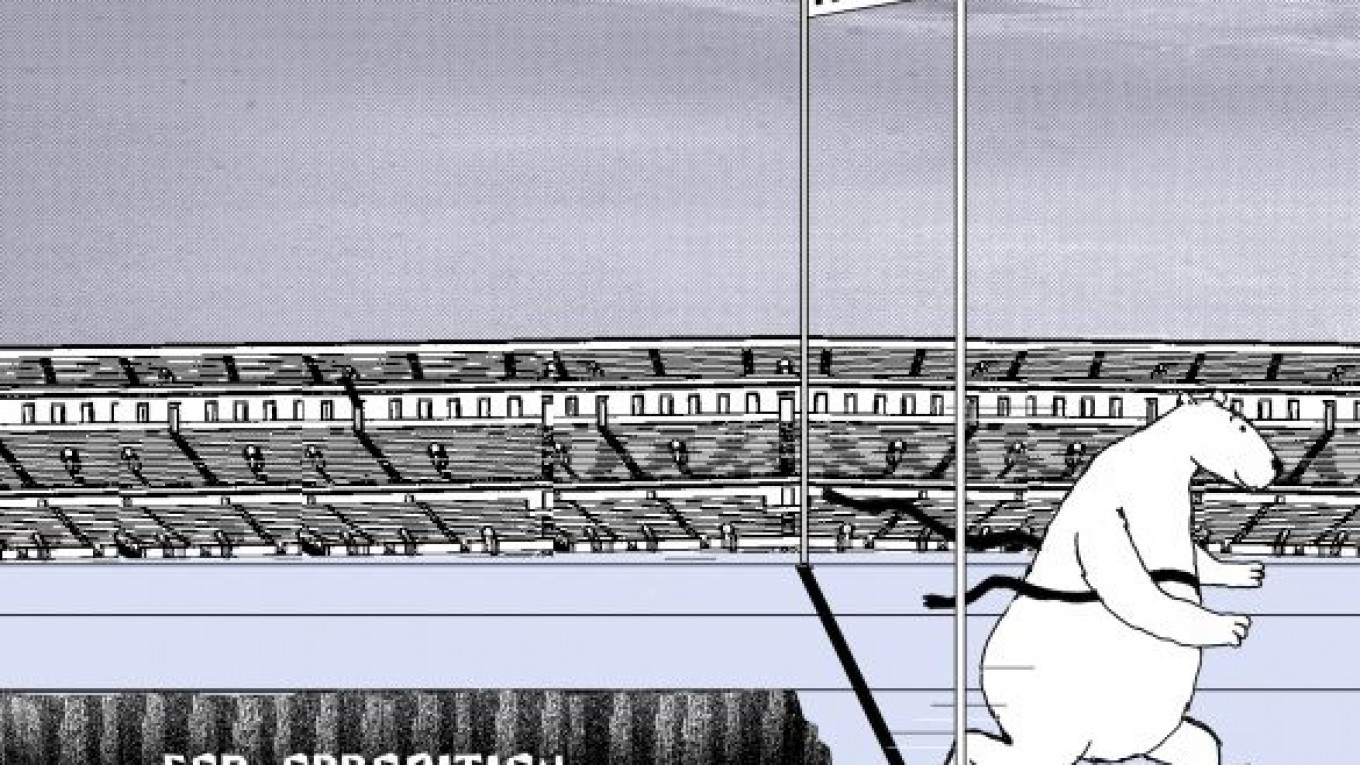As we approach Sept. 8 — when voters will pick candidates in regional elections, including the Moscow mayoral race — we are witnessing more state manipulation of the electoral process. Members of the true opposition are allowed to participate in elections but only according to the rules set by the Kremlin. Candidates who are weak and represent no threat to the Kremlin's preferred candidates are allowed to run without any problem. But those who are likely to get more than 10 percent of the vote have been squeezed by the Kremlin's enormous administrative resources, or simply removed from the races.
Acting Mayor Sergei Sobyanin demonstratively supported his opponent, opposition leader Alexei Navalny, calling on municipal deputies — most from United Russia — to help him get past the so-called municipal filter to participate in the mayoral race. Navalny, whom a Kirov court sentenced to five years in prison on charges of embezzlement, was even freed pending his appeal, something unprecedented in the country's judicial practice, so that he could participate in the mayoral campaign.
Navalny was assigned the specific role of Sobyanin's sparring partner. Although Navalny is a weak candidate — his current ratings hover around only 10 percent — he is still the opposition's top leader and someone who can add some legitimacy to the mayoral race. At the same time, however, Sobyanin feels so sure that he will win the election that he flatly refused to participate in live, televised debates with Navalny and other opposition candidates. This refusal contradicts the official position of United Russia, which recently supported an initiative that would make debates a prerequisite for any election.
In Yaroslavl, Yevgeny Urlashov, the city's mayor and outspoken opponent of United Russia, was arrested on charges of bribery in early July. Most residents of Yaroslavl believe the criminal case against Urlashov is politically motivated. According to local polls, Urlashov's popularity only increased after he was arrested. While in detention, Urlashov said he would like to head the list of Mikhail Prokhorov's Civil Platform party for the elections to the Yaroslavl region's legislative assembly on Sept. 8. In this situation, United Russia, whose hold in the Yaroslavl is weak, could have actually lost the majority of the seats in the region's legislative assembly. If this was allowed to happen, Yaroslavl would have been the first region in the country not controlled by United Russia.
This was precisely why Civil Platform was denied registration on the electoral list on technical grounds. The party was cited for not opening an bank account at Sberbank in time, which is required by electoral law. The party member who was authorized to open the account was reportedly detained by law enforcement authorities and was freed only when it was already too late to open the bank account. This case shows once again how easy it is for authorities to find technical violations to disqualify opposition candidates.
During the campaign for the gubernatorial election in the Zabaikalsky region, where United Russia is also weak, opposition candidates were also forced out. United Russia was instructed to support Konstantin Ilkovsky, the region's Kremlin-loyal governor from the Just Russia party. In addition, the Civil Platform candidate was barred from the race.
In the Zabaikalsky region, 93 candidates from 26 parties, including the four parliamentary parties and independents, filed registration papers to run in the Sept. 8 election. Forty candidates were registered, 28 of them from parties that pose no threat to United Russia. It's notable that the party with the most candidates registered was the Liberal Democratic party, which has always supported United Russia. Eleven candidates from nonparliamentary parties were registered. They all appear to be blatant spoilers who cannot be taken seriously. Such, for example, is the situation in the Vladimir region, where as many as four registered candidates from these second-tier parties are unlikely to receive more than 5 percent of the vote combined. As a result, United Russia will only go up against those candidates who it knows it can beat at the fall elections.
As all sports fans know, a match between a strong professional athlete and a weak amateur is not only boring; it's unpleasant to watch. The same goes for politics.
Georgy Bovt is a political analyst.
A Message from The Moscow Times:
Dear readers,
We are facing unprecedented challenges. Russia's Prosecutor General's Office has designated The Moscow Times as an "undesirable" organization, criminalizing our work and putting our staff at risk of prosecution. This follows our earlier unjust labeling as a "foreign agent."
These actions are direct attempts to silence independent journalism in Russia. The authorities claim our work "discredits the decisions of the Russian leadership." We see things differently: we strive to provide accurate, unbiased reporting on Russia.
We, the journalists of The Moscow Times, refuse to be silenced. But to continue our work, we need your help.
Your support, no matter how small, makes a world of difference. If you can, please support us monthly starting from just $2. It's quick to set up, and every contribution makes a significant impact.
By supporting The Moscow Times, you're defending open, independent journalism in the face of repression. Thank you for standing with us.
Remind me later.







